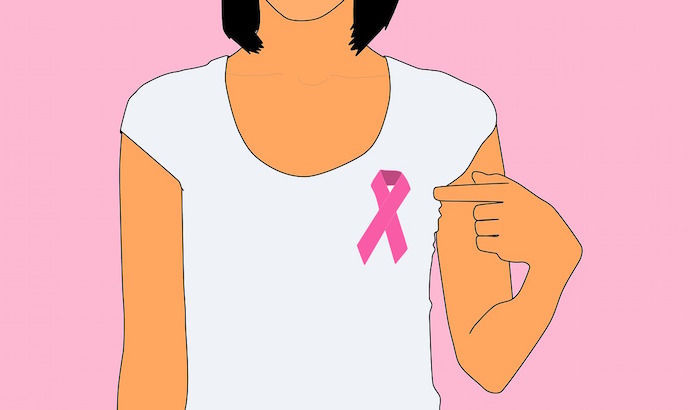The Breast Resource Center of Santa Barbara welcomed visitors to its new home on June 23. Among those gathered at the nonprofit’s homey new cottage, across the street from Oak Park at 525 W. Junipero St., were some of the early founders of center, which serves as an emotional and educational support center for breast cancer patients, survivors and their families.
Nancy Oster, the organization’s first president of the board, reminisced about the group’s beginnings in 1997. Among people with breast cancer, “every community has a grapevine of women you connect with eventually,” said Oster. But it takes a while for newly diagnosed women to make those connections.
Oster and other survivors, along with healthcare professionals, including cancer research pioneer Dr. Susan Love, who had recently come to town, began brainstorming about creating a center in Santa Barbara.
“We had a wish list of things we’d like to see,” said Evie Sullivan, who has been treasurer of the board since its inception.
“We wanted a place that was close to the hospital, near the bus, it would be nice to have a living room, and a kitchen to cook up some chicken soup or something,” recalled Oster. “We also thought it might be nice to have window boxes.”
Two weeks later Dorothy Shea called and generously offered to lend one of three houses in the Cottage Hospital area to the group. “One of them (at 526 W. Pueblo St.) even had window boxes,” said Oster.
The group quickly organized itself as a legal nonprofit and moved in. Staffed and furnished entirely by volunteers, the original carpets and fixtures came from oncology social worker Debbie Hobler, a noted author and one of the BRC’s original board members.
Of primary importance was that newly diagnosed women would feel comfortable at the Breast Resource Center.
“The first day we opened, there was a woman who was about 80 years old, waiting for us at the door,” recalled Judy Blanco, who began volunteering at the BRC and became its first paid employee in 1998. “She said, ‘you know, it is healing just being here.'”
The center’s move, necessitated by a plan by the Cancer Center of Santa Barbara to develop a new facility that will encompass the entire block of Pueblo Street and more, allows more space for programs, but it will also be the first time the organization has had to pay more than a token $1 a year toward rent.
Luckily there are several fundraisers on the horizon, including the Fay Hobbs run on July 17 and the Santa Barbara Triathlon on Aug. 27 and 28.
The center’s new home feels just a homey as the old one.
“It’s still a place where strangers end up hugging,” said Hobler.
Blanco agreed. “Nobody leaves here without hugs.”
For more information on the Breast Resource Center call 569.9693 or visit www.breastresourcecenter.org.

